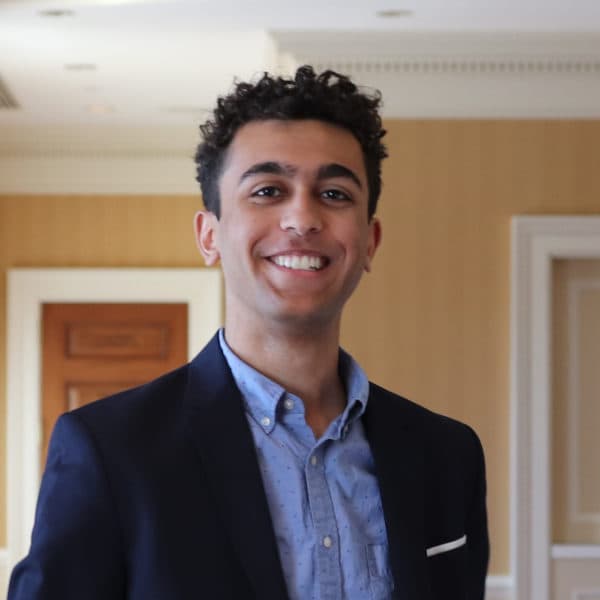Advertisement
In Milton, a new school committee hopes to put the past behind them

Fresh off a school committee election, Milton education officials said they hope the district can cool from a period of anxiety and tackle a slate of contentious issues. The schools face overcrowding, and recently caught the attention of a right-leaning nonprofit critical of its extra-help program for students of color.
The district has an entirely new school committee than it did at the start of the coronavirus pandemic, officials said. Mark Loring and Bao Qiu filled two of the six seats opened by the departures of Elizabeth White and Ada Rosmarin, who stepped down after six years each on the board.
Loring and Qiu won their bids for a three-year term in an April 25 election, defeating two other candidates. They each took nearly 50% of the vote, according to the town’s unofficial results.
Both White and Rosmarin said they were ready to retire. But they also acknowledged that the tone during some school committee meetings turned more negative recently, and public sentiment may have influenced their decision not to seek reelection.
“It probably did play some role,” said Rosmarin, former chair of the committee. “I’m ready to pass the torch to the next generation of people who will be carrying this work forward.”
White, who served on the school committee since 2017, said she felt the temperature rise during the coronavirus pandemic. Residents sent harsh emails over policies and public comment periods became combative, she said.
School committees are usually made up of volunteers, elected by the community’s residents. They approve the district’s budget, help shape education policy and hire a superintendent.
“What was sort of startling to me was the anger,” White said. “We’ve had the police presence several times in our meetings just because of the flavor out there with some people who were so angry.”
Some school leaders said the meetings aren’t as confrontational as they were at the height of the pandemic, though the public comment period during a recent public forum got heated over a discussion on student mental health.
Disruptions to school leadership and political clashes have placed a spotlight on other Massachusetts school districts in recent months. The Newton School Committee voted to not adopt a new advisory panel that some saw as opposed to diversity initiatives. In Wayland, the district put its first Black superintendent on leave after a series of racial controversies.
Advertisement
New Milton school committee members Loring and Qiu said they’re aware of the past climate and are eager to look ahead.
Loring, chief operating officer of Brooke Charter Schools, has two children enrolled in the town’s public schools. Qiu has been a Mandarin Chinese teacher for 16 years. She also has two kids in the schools.
“Milton is not immune to what is kind of ailing us as a society and kind of the increased rhetoric and kind of partisan tone,” Loring said. “The issues in Milton are reflective of the issues across the state and even across the nation.”
In February, a right-leaning nonprofit filed a federal civil rights complaint with U.S. education officials against the district. They argue ‘The Calculus Project,’ which offers extra math tutoring to students of color, is racially discriminatory.
Milton school administrators did not immediately respond to a request for an interview.
Two out of three of the district’s roughly 4,000 students are white, according to data from the state department of elementary and secondary education. The district has become slightly more diverse over the past two decades.
Other challenges beset the district — school officials said there is too little space for a growing student body. One elementary school’s library is divided with temporary walls to create a new classroom. Part of the gymnasium in another school is reconfigured for storage space.
The outgoing school committee members hope the district’s new superintendent, Peter Burrows, can help bring the school community together when he begins his role in July. He takes the job after previous school chief James Jette resigned following an alleged domestic violence incident, according to local reports. Charges against Jette were dropped before he resigned.
“I’m hoping that [Burrows] will be a bridge to help us move forward and maybe set a different tone,” White said.
Glenn Koocher, Executive Director of the Massachusetts Association of School Committees, said the pitched tone of school committee meetings at the height of the pandemic has started to cool. The absence of coronavirus health precautions removed a hot-button issue that once dominated school committee meetings, he said.
“I think it’s less than it was before because the lightning rod issues seem to have moved a little bit to the background,” said Koocher.
There’s more ahead for the district. Elected representatives at the town meetings will soon decide on a ‘land swap,’ allowing the district to build a new school on previously protected land by offering up an equal portion of land to be conserved.
Robert Hiss oversees the public meetings as town moderator. He said this year will be the first annual meeting with in-person electronic voting, and representatives’ votes will be posted online.
“It is an extremely civil experience, really gratifying to participate in,” Hiss said about the town meetings. “It’s uniquely New England. You don’t find it almost anywhere else in the world.”
